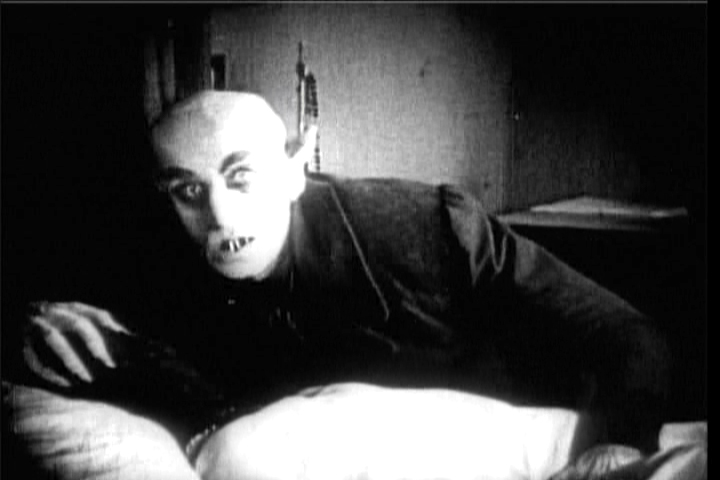Hollywood and view public seem obsessed with vampires and zombies. Deacon James Sinacore reflects on the reasons for this and the hope that our faith continues to provide in the face of evil in our culture. This homily was delivered on April 25, 2021, at St. John Vianney Parish, Northlake, Illinois.
******
In 1922 the movie “Nos Feratu” was released for viewing. This was an unauthorized adaptation of a novel by Bram Stoker.
The story was about a vampire, a creature who is neither alive nor dead… who sustained his existence by consuming the blood of the living and who could be destroyed by being exposed to the light of day.
In 1931, Universal Pictures released the film “Dracula” starring Bela Lugosi. This was probably the most well-known motion picture about a vampire but it was by no means the end of that movie genre.
Since then, over 190 movies about vampires have been made. Along with films about vampires, There has been a parallel production of movies about zombies. Zombies are mindless, reanimated human corpses who walk the earth. And over the last 50 to 60 years, zombies have been depicted as having a ravenous desire to come after and devour the living.

The first zombie film was in 1932, also starring Bela Lugosi. And since then, over 430 movies with this theme have been made.
Now, as I have been reflecting on the overabundance of vampire and zombie stories I have asked myself two questions.
First, what is it in producers that lead them to create such themes in motion pictures and television programs?
And second, what is it in the consumers of entertainment that lead them to watch movies and programs of this type?
Well, if you were to pose these two questions to social scientists, I suspect you would get complex answers. But I don’t think that the answer is really all that complicated.
From a spiritual point of view, vampires and zombies can be seen as symbolizing the harsh and ugly types of creatures that people are capable of becoming. Whether or not someone is a person of faith, we all can see the devastating effects of original sin.
For example, most of us have experienced — or have known — schoolyard bullies. These are kids who enjoy making life miserable for other more gentle children.
And if we think about it, we can sometimes see bullies in other places, such as where we work and where we live.
What motivates a bully? Why does he or she exert willful effort in lording it over or deriding or belittling someone else?
If it’s not a wounded nature that moves one to bully, what would it be? Keep in mind that God did not create us to act like bullies. He does not want us to lord it over one another.
In this regard, professionals offer psychological explanations of how someone might be led to become a bully. But I argue that those factors … in and of themselves … are not going to lead someone to assimilate cruelty in his personality. Remember a bully wants to bully. He or she works at brutality.
And given that fact, I argue that it is succumbing to a wounded nature that explains why someone embraces maltreatment in his relations with others.
You see, it is the effect of, original sin that dehumanizes us. It is yielding to our spiritual wounds that lead people to act in cruel and ugly ways. And I believe that it is our perception of this reality that leads us to produce and to watch stories of vampires and zombies, both of whom are creatures of human form but who have lost their humanity.
It is the dehumanized behavior of vampires and zombies that come to symbolize the dehumanized behavior that is often exhibited by people in the world around us. And believe me, the prevalence of such behavior is prominent and it is escalating.
For example, we live in a time in which many people around the world condone abortion, which is nothing less than the killing of pre-born children.
Don’t think for a minute that we can live in an environment where children are being killed and we aren’t going to recognize the ugliness of that behavior, which directly contradicts the fifth commandment: Thou shall not murder.
Similarly, we live in a world in which people condone and acquire so-called same-sex marriage, which is nothing less than defiance of the natural law in which two people of the same sex attempt to live in the way that God has ordained for one man and one woman to bring forth new life.
Don’t think for a minute that we can live in an environment where men want to marry men and women want to marry women and we aren’t going to recognize that their behavior flies in the face of divine order. As these and other kinds of sinful behaviors prevail, stories of vampires and zombies will be produced and viewed.
Now you and I can take comfort in the fact that God is calling us out of this mess. This is the work of the Good Shepherd. Our Lord likens Himself to a shepherd because this is a person who gives himself entirely to the creatures under his care.
Given that you and I don’t live in an agrarian society, we don’t think much about farming but sheep need the most care of all livestock. Sheep are timid, fearful, and easily panicked. As far as animal intelligence goes, they are dumb and gullible. They have little or no means of self-defense and are easily killed by predators.
In John’s Gospel, we hear our Lord say: “A good shepherd lays down his life for his sheep.” He has to because if he doesn’t, the sheep are doomed.
A hired man watches sheep because they are a means to his income. He doesn’t really have an interest in the animals. To the hireling, his paycheck is his reward. But to the true shepherd, it is the sheep themselves that are his reward.
As we go through the seasons of Lent and Easter … we celebrate the life, death, and resurrection of Jesus Christ. And what many Christians tend not to realize is that the mission of the Messiah was not only to save us from eternal separation from God — what we call salvation.
His mission also served to heal us, to make us whole, to restore in us the humanity in which God created Adam and Eve. That wholeness of being that was lost at the original sin. We call that redemption.
You see, the Good Shepherd isn’t satisfied with just making it possible for us to be in heaven. He has made it possible for us to be partakers of His divine nature. And with the help of the sacraments, we are being transformed.
By laying down His life, Christ has made it possible for us to have everything that God wanted us to have at the beginning of time.
This is what St. John is talking about in today’s second reading. (1 Jn 3:1-2)
He says: Beloved, we are God’s children now; what we shall be has not yet been revealed. We do know that when it is revealed we-shall-be-like-him, for we shall see him as he is.
My dear brothers and sisters in Chris, the effects of original sin are all around us … and one of the artistic ways we express our awareness of this is in the stories we tell about vampires and zombies.

But take heart.
The Good Shepherd has given everything for us, His sheep, and He continues to do so. Because of His love for us, the Good Shepard has laid down His life for us.
If He hadn’t, we would be doomed.
But St. John reminds us that because of the Father’s Love, we can be called the children of God.
— Deacon James Sinacore










